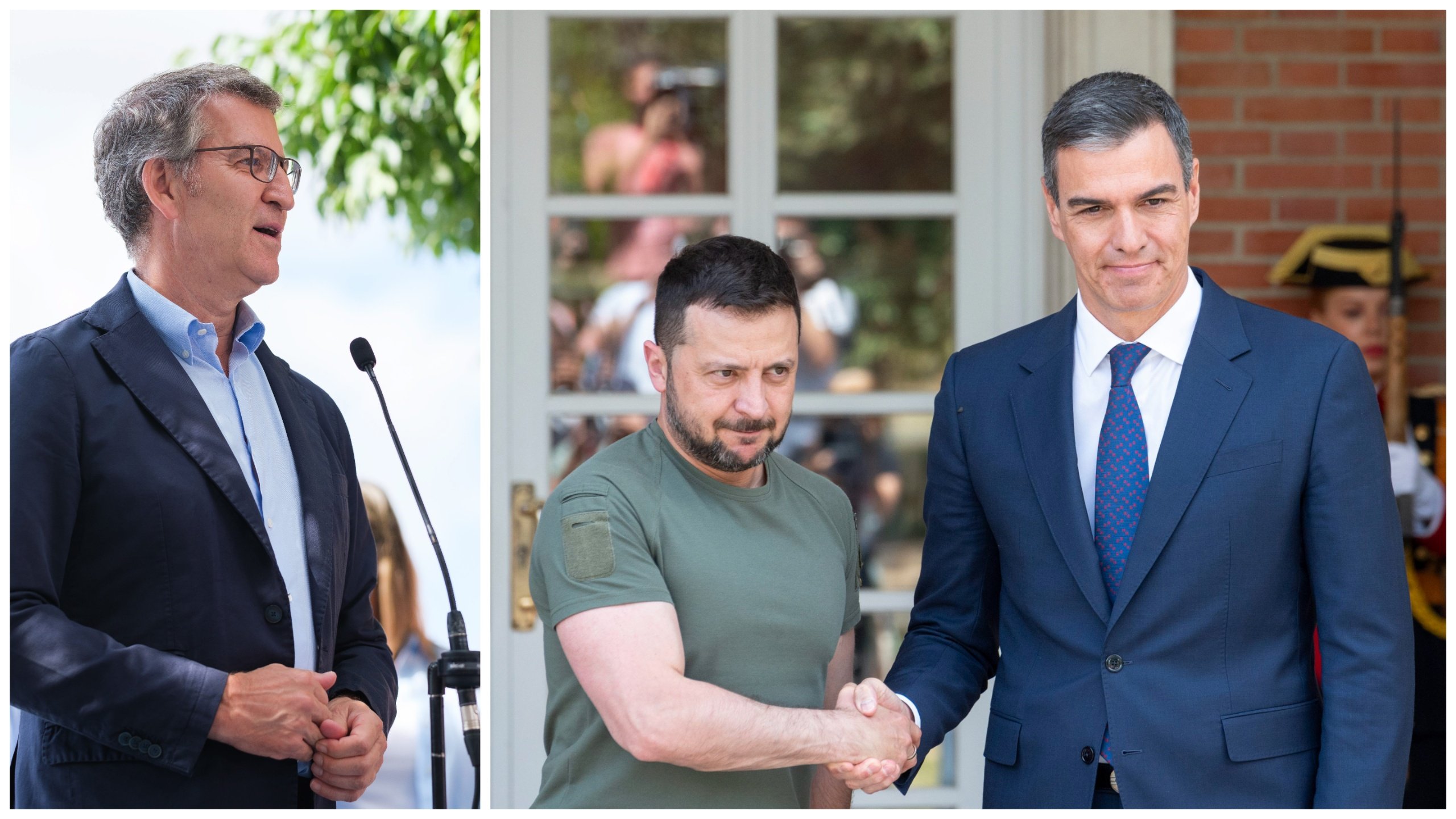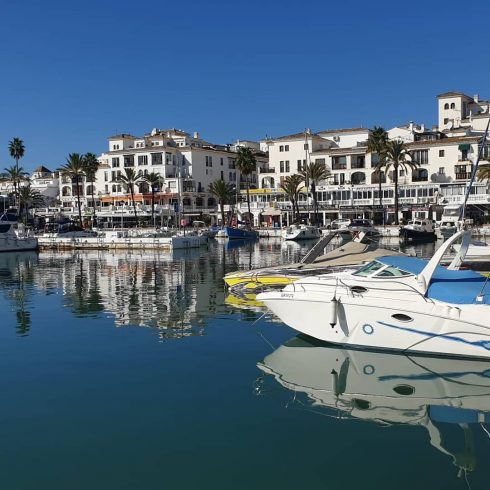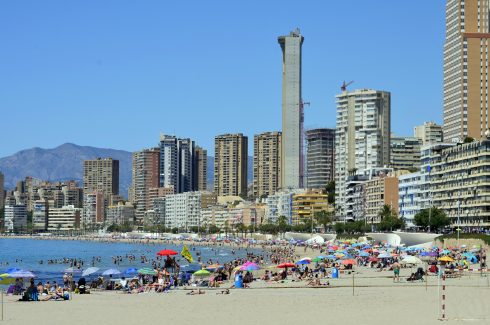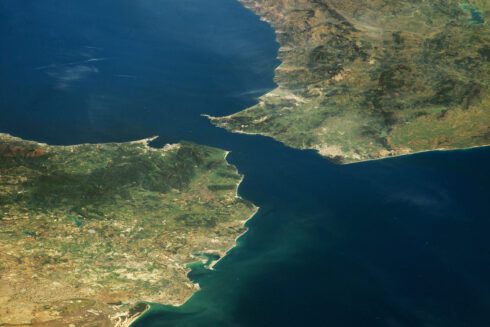ALBERTO Nuñez Feijoo hailed the arrival of a new ‘political cycle’ after his conservative Partido Popular (PP) won the most seats in Sunday’s crunch European elections.
The PP received 34.2% of the vote and won 22 MEPs (Members of European Parliament) who will help to shape the EU’s legislative agenda, edging out Pedro Sanchez’s PSOE socialists who took 30.2% of the vote and won 20 seats.
Over 17 million Spaniards cast a vote on Sunday to determine the 61 politicians who will represent Spain in the European Parliament’s next term.
Speaking in front of supporters, the PP leader said: “We are faced with a new political responsibility, which we accept humbly and with a sense of statesmanship. It’s obvious that walls have fallen and we’ll once again build bridges instead. The discourse of fear has not worked”.
A delighted Nuñez Feijoo was keen to point out that his party received 700,000 more votes nationwide than their bitter rivals, the Socialists, and had increased their vote share by 14 percentage points in comparison to the last European elections, held in 2019.
The PP were the most popular party in every region of Spain bar Catalunya, the Basque Country and the Canary Islands which lent their support to the Socialists and regional pro-independence parties.
Prime Minister Pedro Sanchez congratulated the PP on X for their electoral success but insisted that his party was the ‘only government option capable of facing the far-right wave that is sweeping Europe and Spain’.
Israel Katz, the Israeli foreign minister who has entered a war of words with the Spanish government since the decision to formally recognise a Palestinian state, said that ‘the Spanish people have punished Pedro Sanchez and Yolanda Diaz with a resounding defeat in the elections’.
Accompanied with a mocked-up AI image of Sanchez and his deputy with eggs on their faces, Katz tweeted: “It turns out that embracing Hamas murders and rapists doesn’t pay off”.
In the tweet, Katz tagged Feijoo and Santiago Abascal, the Vox leader who visited Benjamin Netanyahu earlier this month and vowed to reverse the recognition of Palestine if he ever became Prime Minister.
The far-right Vox party came third in the elections, winning 9.6% of the vote and increasing their number of MEPs by two to six.
A new far-right party called Se Acabó La Fiesta (The Party Is Over) won three seats in an impressive electoral debut.
Winning over 800,000 votes, the party are led by Alvise Perez, an alt-right online vigilante with over 450,000 followers on Telegram who was once a member of the UK’s Liberal Democrats and has been compared to Javier Milei, the Argentine President, and Nayib Bukele, the President of El Salvador.
The left-wing Sumar coalition won three seats, whilst Podemos, the far-left party founded by Pablo Iglesias, saw their number of MEPs fall from six to two.

A coalition of left-wing pro-independence parties called Ara Republiques, consisting of the Catalan ERC, Basque EH Bildu, Galician BNG and Balearic Ara Mes, won three seats.
Elsewhere, the conservative pro-independence Junts per Catalunya party, formerly led by Carles Puigdemont, won one seat, as did the Coalition for a Solidary Europe, a loose coalition of regional nationalist parties from the Basque Country, the Canary Islands, the Balearic Islands and Navarre.
Once in the European Parliament, each party will join a transnational political group that will work together to advance a common agenda.
The European People’s Party Group (EPP), which includes the PP and European Commission president Ursula von der Leyen, won 185 of the 720 seats available as over 450 million people across Europe headed to the polls.
The PSOE will join the Progressive Alliance of Socialists and Democrats (S&D), forming the second largest group in the European chamber with 137 seats.
Renew Europe, which will likely include Sumar, were third with 79 seats, a decrease of 29 since 2019.
The European Conservatives and Reformists (ECR) and Identity and Democracy (ID) both experienced success as far-right parties surged across Europe.
Far-right parties came first in Austria, Belgium, France, Hungary, and Italy, with the two populist right-wing blocs in the EU parliament garnering 131 seats in total.
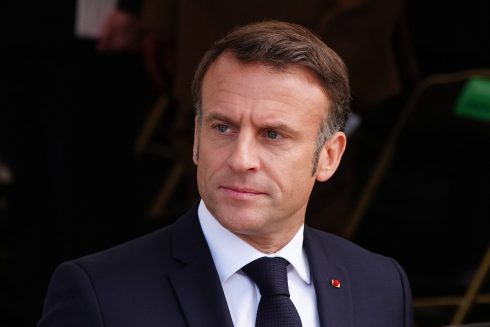
In France, Marine Le Pen’s National Rally won over 30% of the vote, over double the vote share achieved by the party of Emmanuel Macron in a bruising blow for the French President.
Macron told the French public that he had ‘decided to give you the choice’ after he called surprise snap legislative elections in the wake of the crushing defeat.
Elsewhere, pro-green and left-wing parties suffered a drop in support.

